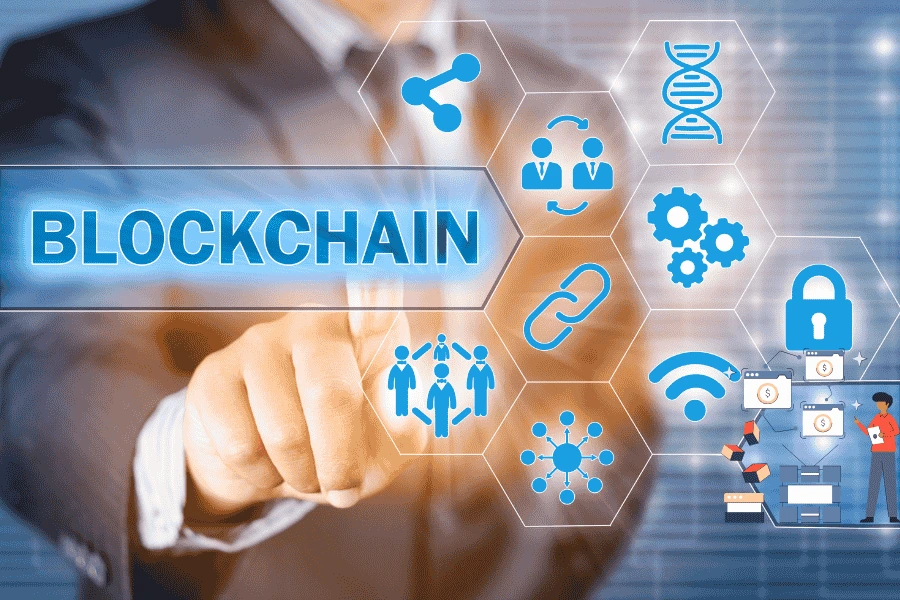Building Custom Blockchains and Smart Contracts with Python
Blockchain technology is no longer just the foundation of cryptocurrencies — it’s rapidly becoming the backbone of next-generation applications across industries like finance, supply chain, healthcare, and real estate.If you're looking to explore blockchain development, Python stands out as one of the best programming languages to get started.It offers simplicity, extensive libraries, and strong community support, making it ideal for building custom blockchains and smart contracts. although Python isn’t typically used in production-grade blockchain platforms due to speed constraints, it’s ideal for learning, research, and developing private, lightweight blockchains for specific business use cases. Smart contracts, while more commonly associated with Solidity on Ethereum, can also be implemented in Python on platforms like Hyperledger Fabric or using frameworks such as Vyper. These contracts allow automated, tamper-proof execution of agreements, useful in finance, supply chains, and legal tech. By leveraging Python, developers gain a flexible, rapid development environment for exploring blockchain’s potential in custom applications.

Why Use Python for Blockchain Development?
Ease of Learning and Use:
Python’s ease of learning and use makes it an ideal starting point for developers interested in blockchain technology. Its clean syntax and high readability allow beginners to grasp complex concepts like hashing, digital signatures, and consensus algorithms without being overwhelmed by intricate code.
Rapid Prototyping:
Python allows teams to build functional prototypes—including block structures, hashing algorithms, mining simulations, and peer-to-peer networking—within a matter of hours or days rather than weeks.
Strong Community Support:
Python's strong community support is a significant advantage for developers building blockchains and smart contracts. With one of the largest and most active programming communities in the world, Python offers abundant resources including open-source projects, tutorials, forums, and documentation—all of which are especially valuable for solving challenges in emerging fields like blockchain.
Integration with Other Technologies:
Python seamlessly integrates with AI, IoT, cloud services, and data analytics — making it a future-proof choice for blockchain ecosystems.
Best Python Libraries for Blockchain Development
Python offers a rich ecosystem of libraries that make blockchain development more accessible, efficient, and powerful. Libraries like hashlib provide the cryptographic foundation needed for hashing blocks and securing transactions with digital signatures. For Ethereum-based applications, web3.py and Brownie allow developers to interact with smart contracts, send transactions, and run tests entirely in Python. Web frameworks like Flask and FastAPI make it easy to build APIs for peer-to-peer communication or blockchain dashboards, while database tools such as sqlite3 and LevelDB help manage local storage of blockchain data. Advanced cryptographic tasks can be handled with pycryptodome, and HTTP communication is simplified with the popular requests library. Additionally, tools like IPFS-HTTP-Client enable integration with decentralized storage networks, expanding the possibilities for blockchain apps such as NFTs and digital identity systems. Together, these libraries empower developers to build scalable and secure blockchain solutions with Python, whether for prototyping, education, or production use.
Conclusion
Building custom blockchains and smart contracts with Python is more achievable than ever. Python’s simplicity combined with powerful libraries provides an accessible path to creating decentralized applications, blockchain networks, and smart contract systems. Whether you're an entrepreneur, developer, or tech enthusiast, mastering blockchain development with Python can open up a world of possibilities — from improving traditional business processes to creating innovative Web3 applications.
- Lejhro bootcamp https://www.bootcamp.lejhro.com/data-science-course-training And
- https://www.bootcamp.lejhro.com/full-stack-development-course-training in just eight weeks.
Active Events
Data Scientist Challenges One Should Avoid
Date: August 14, 2024 | 7:00 PM (IST)
7:00 PM (IST) - 8:10 PM (IST)
2753 people have registered
Your Data Science Career Game-Changing in 2024: Explore Trends and Opportunities
Date: Aug 08, 2025 | 7:00 PM (IST)
7:00 PM (IST) - 8:10 PM (IST)
2811 people have registered
Bootcamps
Data Analytics Bootcamp
- Duration:8 weeks
- Start Date:October 5, 2024
Data Science Bootcamp
- Duration:8 weeks
- Start Date:October 5, 2024
